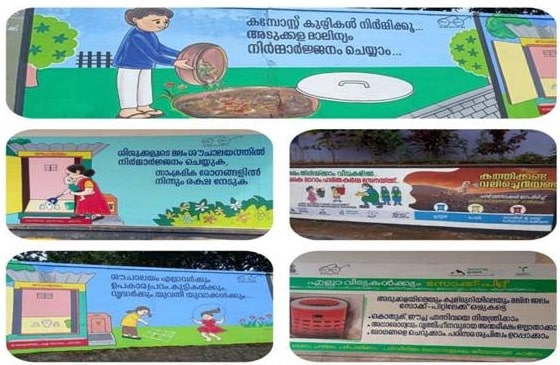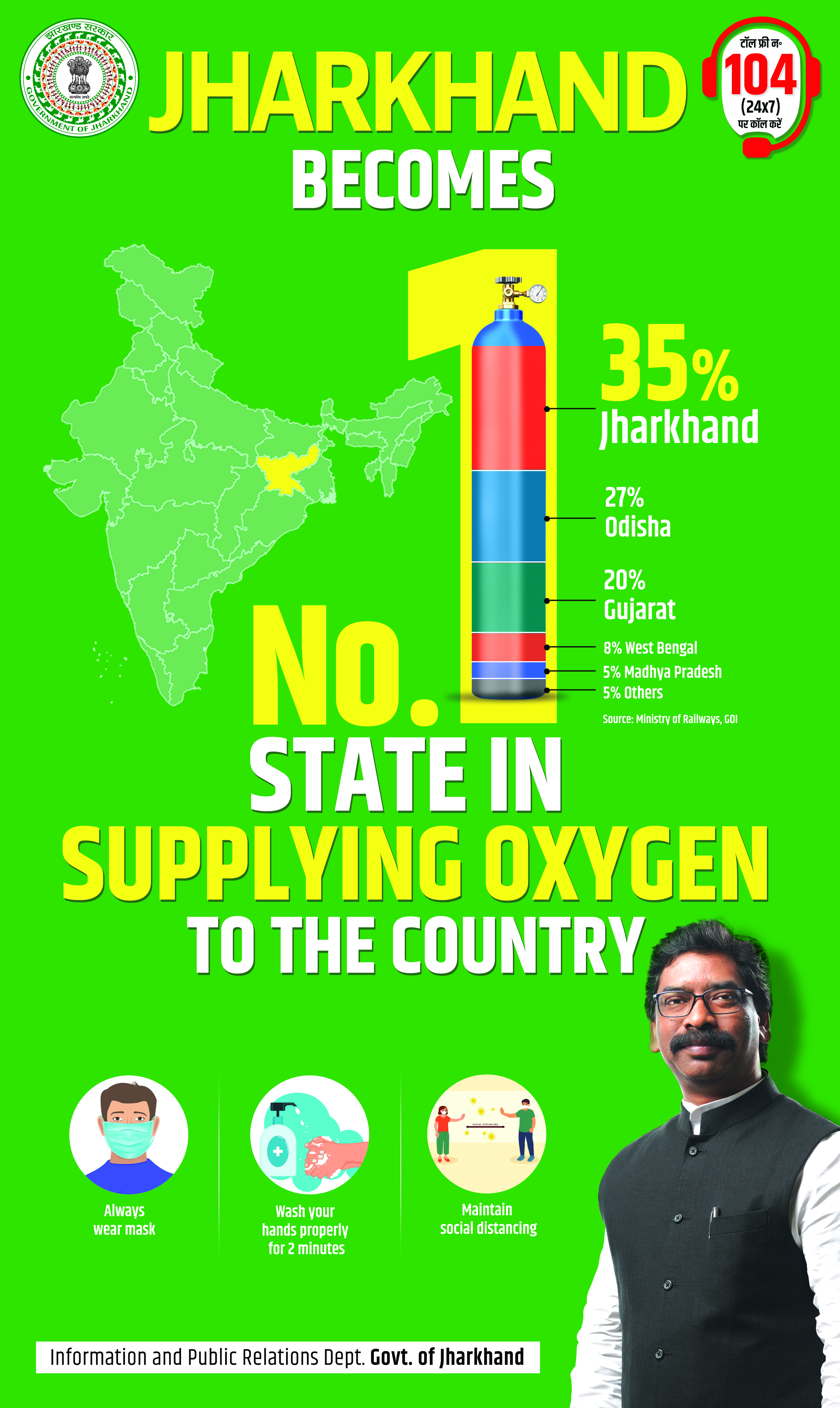
Owing to various ODF Plus interventions, Keezhattur village in the Malappuram district of Kerala is today a model ODF Plus village. Famous for its socio-cultural relevance as the capital of ancient Valluvanad, the village which was declared ODF in 2016 has shown exceptional performance in sanitation and waste management, compared to other Grama Panchayats (GPs) in the Perinthalmanna Block.
Keezhattur village can boast of 100 per cent door-to-door collection of dry waste and 100 per cent management of wet waste at source. The village has successfully collected user fees for the collection of segregated waste from all institutions and 70 per cent of households.
A Material Collection Facility (MCF) is available at the GP level and forward linkages have been established through the Resource Recovery Facility (RRF) at the block level.
Further, an initiative that has successfully reduced the volume of dry discards or non-biodegradable waste is the effective implementation of the Green Protocol in all government offices, institutions and for events organised under the purview of the GP.
The green protocol is essentially a set of measures that when implemented result in a significant reduction of waste with a primary focus on prevention of the use of disposables and using reusable alternatives such as glass, stainless, and porcelain crockery and cutlery.
Green protocol - an enviro-cultural revolution has truly become a movement in Kerala. When Green Protocol is implemented in any event, non-biodegradable waste generation becomes close to zero. Therefore, the question of waste management after the event becomes virtually non-existent. It was tried for the first time during the National Games held in Kerala and now it has become a people’s movement with many functions including weddings implementing the Green Protocol.
Another winning strategy was the engagement of an external agency for rendering support for solid waste management (SWM) initiatives. The agency facilitates regular monitoring of SWM initiatives under the guidance of the GP administration.
Notably, all schools, Anganwadi Centres, and public offices have toilet facilities.
More than 80 per cent of households and institutions have their own source-level SWM facilities, while all schools and Anganwadi centres have their own systems for managing solid waste and soak pits for managing liquid waste.
Focus is also given to IEC activities to keep people aware of the importance of hygiene and sanitation, promote source-level segregation, management of wet waste at the source itself, and motivate waste generators to pay user fees for the door-to-door collection and processing of waste.
